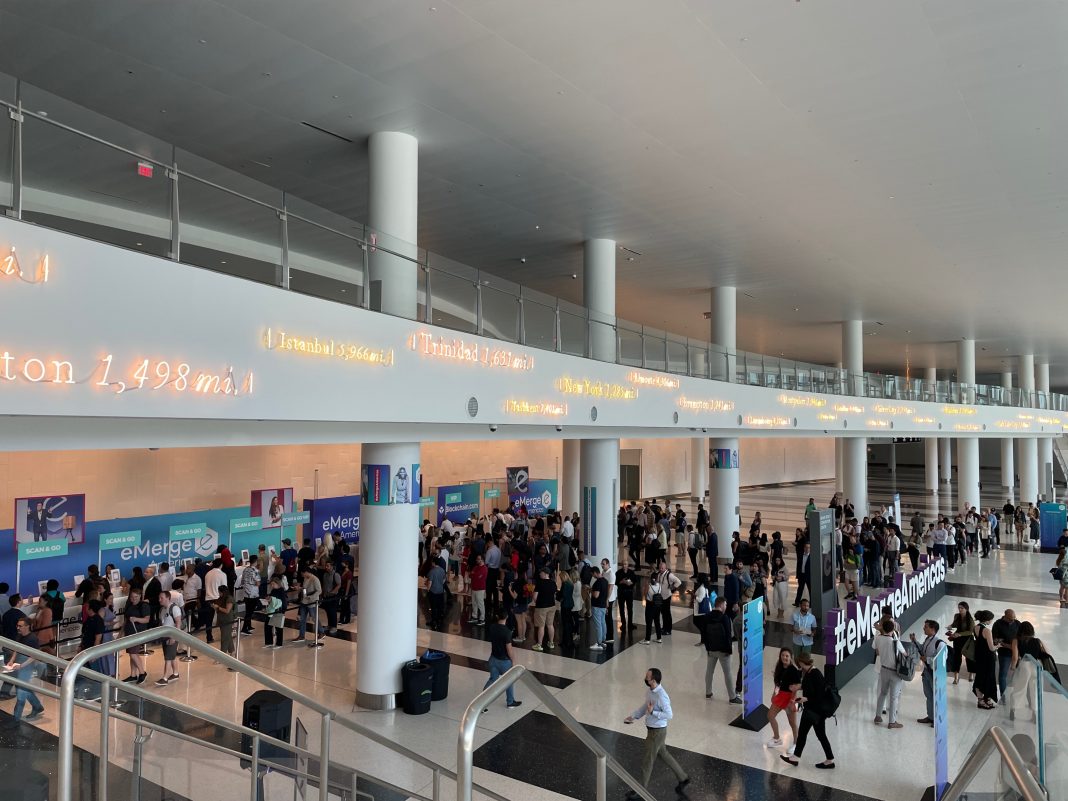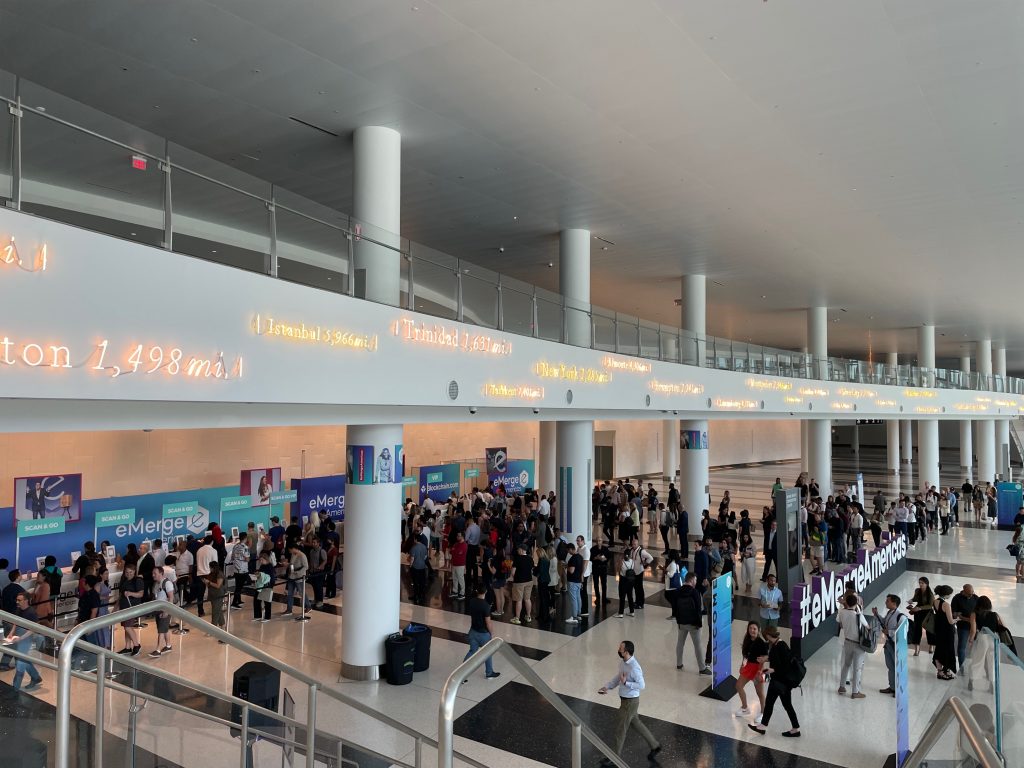

Miami, a developing tech hub frequently called the “capital of Latin America,” is uniquely at the center of technological evolution and American politics.
The “Knight Conversation on Miami at the Intersection of Tech & Democracy” hosted a number of panelists for a discussion on technology’s role in democracy, particularly in the Americas, followed by a brief question and answer period. The event took place Monday morning, at the Miami Beach Convention Center.
The University of Miami President, Julio Frenk, hosted the event, delivering several opening and closing remarks.
“I have often noted that ours is not merely a university in Miami, but the University of Miami,” Frenk said. “At a time when all of us can feel the buzz of excitement about the role that this cosmopolitan city is playing as a global tech hub, our role as a comprehensive research university becomes essential.”
Andres Oppenheimer, noted Miami Herald columnist and CNN political analyst, moderated the event.
Other panelists included Rony Abovitz, co-founder of MAKO and founder of Magic Leap; Jaret Davis, a technology attorney at the Miami Office of Greenberg Traurig P.A; Dr. June Teufel Dreyer, a UM professor of political science and leading expert on China; Carlos Trujillo, former US ambassador to the Organization of American States and Yelena Yesha, the Knight Foundation Endowed Chair of Data Science and AI at the University of Miami Institute for Data Science and Computing.
The panels discussed the diffusion of computational power, technology’s role in democracy, the legal framework of technology regulation, the state of autocracy and democracy in the Americas and the influence of China, respectively.
The first panel defined the term “computational democracy.” Abovitz discussed the tendency of tech to concentrate its power into the hands of a few individuals and prompted a call to a greater diffusion of power.
“You have a very small group of people who command a massive amount of computing power that really drive how a lot of computing is today,” Abovitz said.
This is called centralized computing. In contrast, decentralized computing gives more power to the individual. For example, Apple’s creation of personal computers in the 1970s allowed users privacy and power.
He pointed out that computational democracy is particularly relevant following Elon Musk’s announcement that he would like to acquire Twitter. Abovitz called for a move towards computational democracy away from computational autocracy.
The second panel spoke to the potential of technology to defend democracy, especially in light of its threat to democracy through misinformation.
Yesha spoke on the potential of blockchain technology to combat the spread of misinformation through identifying the origin of news and thus the verifiability of the news.
“It isn’t easy but it’s doable,” Yesha said.
Following the discussion of technology being used to defend democracy, the third panel detailed the legal framework for such technology.
Davis presented the National Artificial Intelligence Initiative Act, a recently passed law that creates an office and committee to advise on the current state of US competitiveness and leadership in AI.
“Arguably, whatever initiative we develop, including the Philadelphia Convention Part Two, has congressional authorization to the extent we can floor it through this new office and these new advisory committees,” Davis said.
The Philadelphia Convention Part Two he refers to is a framework of laws that combat computational autocracy, similar to the way the United States’ founding fathers combatted the autocracy of Britain.
The fourth panel, democracy in Latin America, examined the reasons for the backslide of democracy in Latin America and tech’s influence on this trend. This topic is particularly relevant in Miami, a city with sizable Cuban and Venezuelan diasporas, and a crossroads of Latin political affairs.
Trujillo identified some of the US’ shortcomings in its policy towards Latin America, including ambivalent attitudes from different presidents, a blind preference towards capitalism and liberal democracy and lack of economic ties with many countries.
At the same time, China has strengthened its economic ties and political influence in the Americas, especially through technology.
“For years the US approach was that democracy and free market capitalism were the only option in Latin America. Over the last 20 years, with the influx of China, now the alternative is some sort of totalitarian government with a more or less free market approach controlled by certain oligarchs. That has become the prevalent thinking throughout Latin America,” Trujillo said.
The fifth and final panel reviewed China’s role in democracy and technology in Latin America.
Dreyer drew importance to the proliferation of Huawei, Chinese state owned telecommunication infrastructure; investments in bridges, dams and roads and the “carnet de patria,” a catch-all credit card issued by the Chinese government. Through these tools, China has greatly increased its political and economic leverage in Latin America.
The conversation concluded with references to the upcoming “Summit of the Americas” in Los Angeles and the ways the Summit can broach some of the earlier discussed issues.
Debbie Mucarsel-Powell, former congresswoman and special advisor to the Summit of the Americas, described her hopes for the Summit.
“The Summit of the Americas is offering a unique moment to put forth a compelling vision, as a hemisphere, for how we can affirmatively use technology in a way that serves our citizens, promotes opportunity and inclusion, protects our privacy and uplifts our highest democratic values,” Mucarsel-Powell said.





